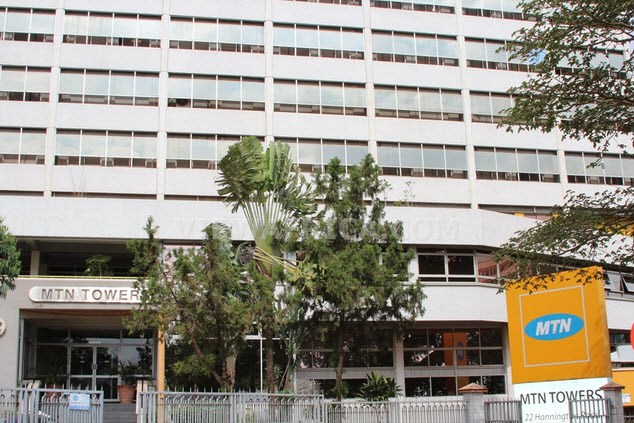Mobile Money has become a way of life. From salaries to school fees, even government old age pensioners allowances are sent through the platform.
The 2017 Bank of Uganda statistics indicate that Mobile Money transactions increased by about UGX 10 trillion (22.7%) from UGX 44 trillion in 2016 to UGX 54 trillion in 2017.
The mobile money industry is now worth more than Shs60 trillion (just over $11 billion), which is nearly a half of Uganda’s gross domestic product. At the current level, the mobile money industry, which is a year shy of making a decade in Uganda, is way bigger than the total asset base of the country’s banking industry.
Was it wise to tax Mobile Money?
So, to government, there is so much money floating around the mobile money market, a quick taxable resource that should be tapped.
Government in its attempt to widen the tax bracket decided to institute a tax on all Mobile Money transactions. This ofcourse had to come with some effects.
Mobile Money has taken such a crucial part of Uganda’s financial fibre that employees who work away from their headquarters in far flung parts of Uganda now prefer to be paid by the platform. It is at the centre of financial transactions for most Ugandans.
Research also shows how much of an important aspect Mobile Money is, reports have been outed. A March 2018 report titled ‘Under Pressure? Ugandans’ opinions and experiences of poverty and financial inclusion’ by Sauti Za Wananchi, which is part of Twaweza, a non-profit organisation.
The report found that two out of three citizens use mobile money services. The same survey also found that most of the respondents were satisfied with the mobile money services.
Will lives be affected with the Mobile Money tax? Yes!
Among its tax proposals, the one per cent charge on the value of the transactions spells doom for many Ugandans and already the number of people who use mobile money services has reduced. This is a step back in Uganda’s attempt at financial inclusion.
Governments introduction of an additional tax on a service that has been helping many people live life comfortable has hurt businesses, and is hurting the economy
For example, to younger people who had started enjoying the relief of sending up-keep for their old folks in the countryside in the comfort of their houses in the city now either have to fork out more money or take a busmiles away to do the family ritual.
It is going to be cheaper to jump on a matatu in order to collect money than incur the high charges that have been set.
For the poor in rural areas, the charges have eaten into their disposable incomes and harden their already miserable lives.
Telecoms/Agents Speak Out
The telecoms aren’t spared either. Their cuts for facilitating transactions are on a low down.
Airtel’s PR Manager SuminNamaganda was cagey when asked. “It is too soon to have those figures. I will get some details and call you back” she told this website.
A random survey around the Kisasi town from the Mobile Money agents showed a scary picture. Harriet Kasirye who operates her small Mobile Money stall at Yusuf Arcade said she used to have averagely 80 transactions a day with float of 10 million, Since Sunday, she says the numbers have dropped to about 15 a day and dealing in small amounts.
“At this rate, I might have to find another source of survival because my customers are all gone” She said. “This new tax is killing our business and we are worried it will send us packing,” she added.
Efforts to get a comment from MTN who hold over 50% of the mobile money market were futile as Val Oketcho-MTN’s PR Manager’s phone went unanswered and had not returned our calls by press time.
Susan Mugizi who operates a Mobile Money agency in Ntinda said they had lost nearly 70% of their customers. “We usually have an average 200 customers a day. That number has since dropped to about 40, and our transactions across have shrunk from over 30m to now 8m”She added that at the present rate of customer drop-out, they would have to find other ways to resuscitate their business or face closure.
Who is winning, losing?
A quick calculation done by this website revealed the reason why customers had dropped Mobile Money transactions.
To send 1,000,000 one would be charged 10,000 as 1% deposit tax, 2,000 shillings for the telecom leaving a balance of 988,000 which is subjected to a 1% tax leaving about 978,120. The telecom on the receiving end then deducts 12,500 as withdraw fee, while government then adds a withdraw tax of 9,781 shillings leaving just 955,839 for the receiver and a whole 50,000 shillings lost in the transactions.
If one was sending this money to Mbarara, it would be cheaper to buy a buy ticket of 15,000, brave the 4hour journey, deliver the money, make a return at 15,000 saving over 20,000 compared to sending the same amount over Mobile Money.
It is important to note that the mobile money industry has evolved from just being a platform for sending and receiving money to also becoming a crucial short-term credit market with easily-accessible unsecured loans.
With the growing discontent already over the exorbitant tax, worries are rife that many people’s lives will be affected.





